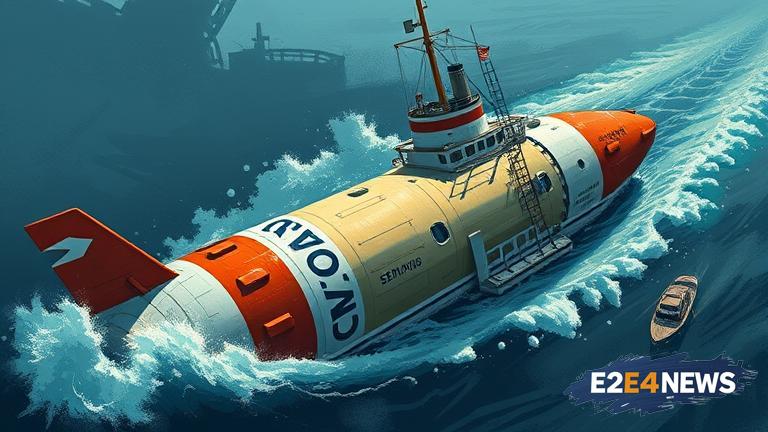The Coast Guard’s investigation into the Titan submersible disaster has shed new light on the tragic events that unfolded on June 18, 2023. The incident, which resulted in the loss of five lives, was deemed preventable by the Coast Guard. The submersible, operated by OceanGate Expeditions, was on a mission to explore the wreckage of the Titanic when it imploded due to a catastrophic failure of its pressure hull. The Coast Guard’s report highlighted several factors that contributed to the disaster, including inadequate safety protocols, insufficient training, and a lack of regulatory oversight. The investigation revealed that the submersible’s design and construction were not in compliance with industry standards, and that the company had failed to conduct proper safety inspections and maintenance. Furthermore, the report noted that the crew was not adequately trained to respond to emergency situations, and that the company’s safety procedures were inadequate. The Coast Guard also criticized the lack of regulatory oversight, stating that the industry lacks clear guidelines and standards for submersible operations. The report’s findings have sparked widespread outrage and calls for greater accountability and regulation of the submersible industry. The incident has also raised questions about the safety of deep-sea tourism and the need for more stringent safety protocols. The families of the victims have expressed their grief and frustration, demanding answers and justice for their loved ones. The Coast Guard’s report has provided some closure, but the incident will undoubtedly have a lasting impact on the industry and the families affected. The Titanic, one of the most infamous shipwrecks in history, has once again been the site of tragedy, serving as a stark reminder of the risks and dangers associated with deep-sea exploration. The incident has also sparked a wider debate about the ethics of deep-sea tourism and the potential risks to both humans and the environment. As the investigation continues, it is clear that the Titan submersible disaster will have far-reaching consequences for the industry and beyond. The Coast Guard’s report has highlighted the need for greater transparency and accountability in the submersible industry, and for more stringent safety protocols to be put in place. The incident has also raised questions about the role of regulatory bodies and the need for clearer guidelines and standards. The Titan submersible disaster is a tragic reminder of the importance of safety and the need for responsible and sustainable practices in the submersible industry. The incident will undoubtedly serve as a catalyst for change, driving the industry towards greater safety and accountability. The Coast Guard’s report has provided a detailed analysis of the incident, highlighting the complex interplay of factors that contributed to the disaster. The report’s findings will be closely scrutinized by industry experts, regulatory bodies, and the public, as the search for answers and justice continues. The Titan submersible disaster is a sobering reminder of the risks and dangers associated with deep-sea exploration, and the need for greater caution and responsibility in the industry. The incident has sparked a wider debate about the future of deep-sea tourism and the need for more sustainable and responsible practices. As the industry moves forward, it is clear that the Titan submersible disaster will have a lasting impact, driving change and improvement in safety protocols and regulatory oversight.





